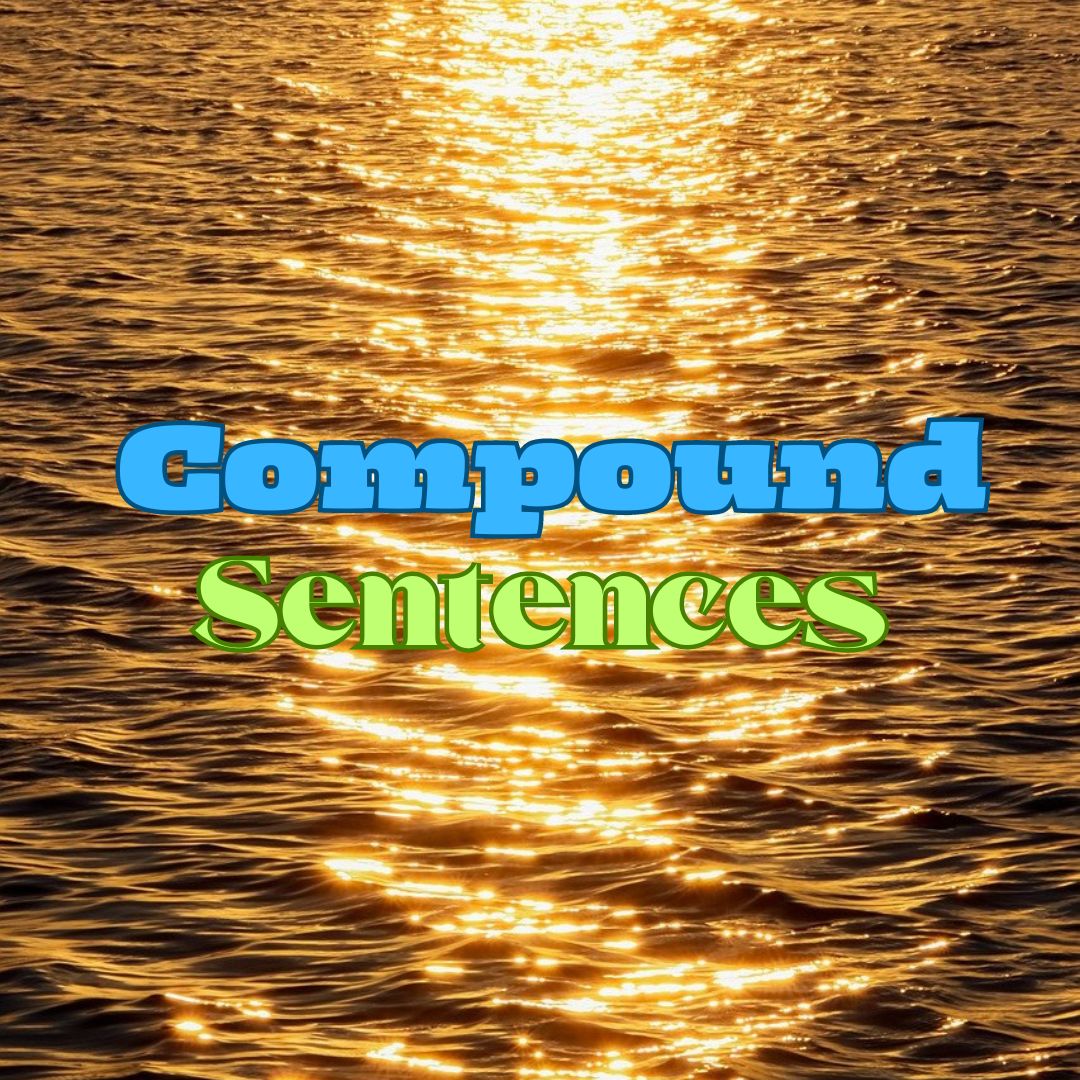Compound Sentences

Compound Sentences:
A compound sentence is a type of sentence that consists of two or more independent clauses (complete sentences) joined together.
The key characteristic of a compound sentence is that these independent clauses are connected either by coordinating conjunctions or by punctuation.
Connected with Conjunctions:
In compound sentences connected with conjunctions, the independent clauses are linked by coordinating conjunctions.
FANBOYS is an acronym that represents the seven coordinating conjunctions commonly used in English.
Here they are:
F: For
A: And
N: Nor
B: But
O: Or
Y: Yet
S: So
For: Presents a reason or cause.
She was late, for the bus had already left.
And: Adds information or connects similar ideas.
He likes to play basketball, and he excels at it.
Nor: Connects two negative alternatives.
She neither sang well, nor did she dance gracefully.
But: Contrasts ideas or shows a conflicting relationship.
He wanted to go out, but it was raining heavily.
Or: Presents an alternative or a choice.
You can choose tea, or you can have coffee.
Yet: Indicates contrast or unexpected result.
She studied hard, yet she failed the exam.
So: Shows a consequence or result.
He was tired, so he went to bed early.
Connected without Conjunctions:
In compound sentences connected without conjunctions, a semicolon or a semicolon with a conjunctive adverb is used.
Common conjunctive adverbs include however, therefore, consequently, etc.
The sun was setting; the sky was painted in hues of orange.
She loves to read; however, she seldom finds time for it.
Punctuation and Examples:
Using Conjunctions:
1.She loves to swim, and he prefers to hike.
2.They wanted to visit the museum, but it was closed for renovations.
Without Conjunctions (Using Semicolon):
1.He enjoys playing the guitar; she prefers playing the piano.
Without Conjunctions (Using Semicolon + Conjunctive Adverb):
1.He didn’t pass the first exam; therefore, he decided to study harder for the next one.
The choice between using a coordinating conjunction, a semicolon, or a conjunctive adverb often depends on the context and the specific relationship between the clauses.
In a compound sentence, each independent clause is considered equally important.
They contribute to the overall meaning of the sentence and are usually related in some way.
While a basic compound sentence connects two independent clauses, it’s possible to create more complex sentences by connecting three or more independent clauses.
This often involves a mix of conjunctions and punctuation.
Connected with Conjunctions:
1.She loves to read, and he enjoys playing the guitar, but they both agree that hiking is their favorite outdoor activity.
2.He woke up early, so he could catch the sunrise, and he made breakfast, but he forgot to add salt to the eggs.
Without Conjunctions:
1.She loves gardening; he prefers cooking; their neighbour enjoys birdwatching.
2.They studied late into the night, she focused on history, he concentrated on mathematics, neither felt fully prepared for the exam.
Compound sentences that incorporates
both conjunctions and punctuation:
1.She loves to travel, and she has visited many countries; however, her favorite destination is still Paris.
2.He wanted to go for a run, but it was pouring rain; nevertheless, he decided to hit the gym instead.
3.She finished her project on time, yet she forgot to submit it; consequently, she received a lower grade than expected.
Common Mistakes:
One common mistake in constructing compound sentences is the misuse of a comma without a coordinating conjunction.
This error is known as a comma splice.
Incorrect: She loves to read, she rarely finds time for it.
Correct: She loves to read, but she rarely finds time for it.
Another error is the use of a comma after a coordinating conjunction.
This is not necessary unless it is followed by a conjunctive adverb.
Incorrect: He wanted to go out, but, it was raining heavily.
Correct: He wanted to go out, but it was raining heavily.
Types of Interrogative Sentences
Declarative Sentence in English Grammar
What is Sentence? Definition of a Sentence
Comparison of the Prepositions “In” and “At”